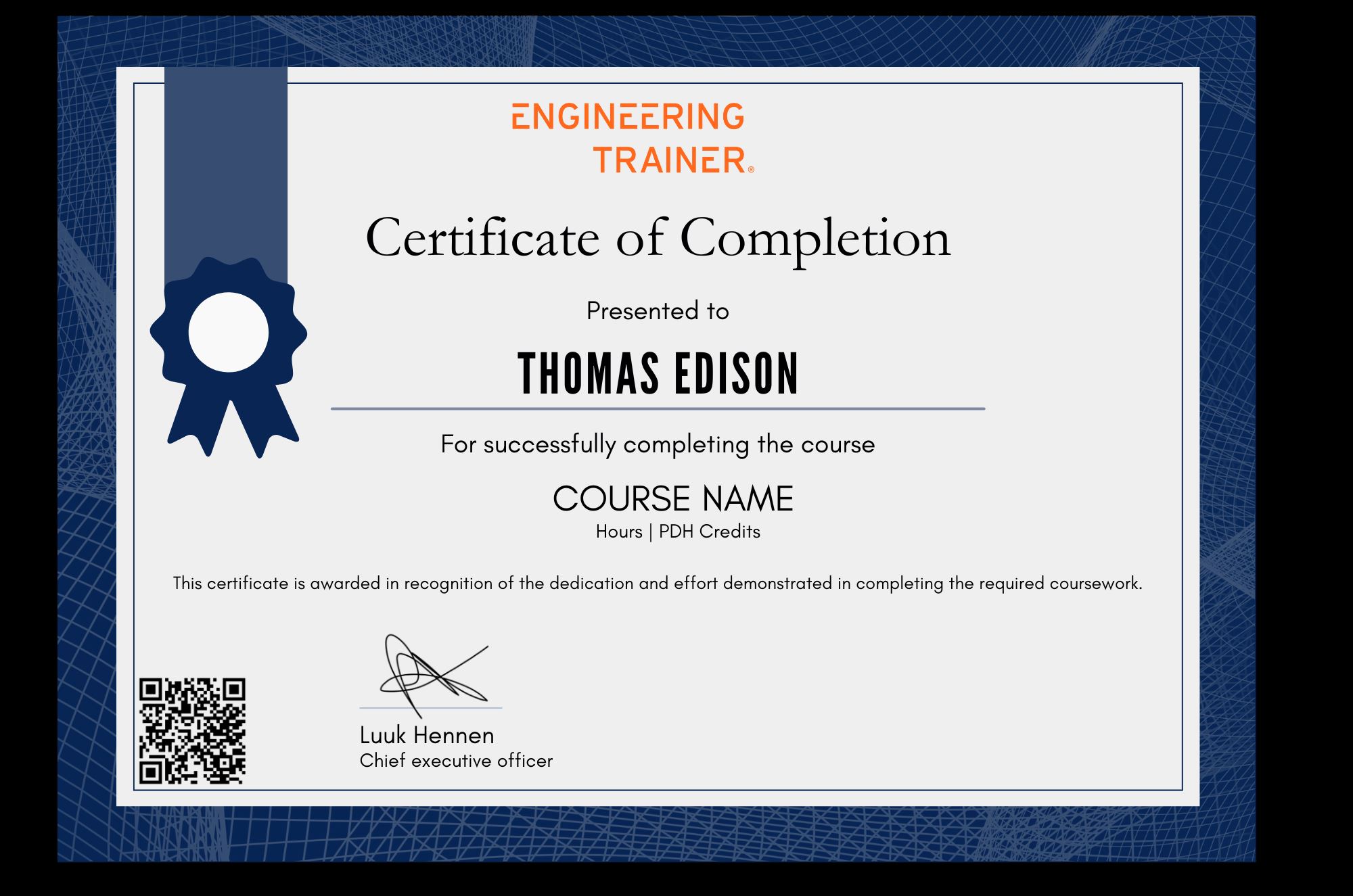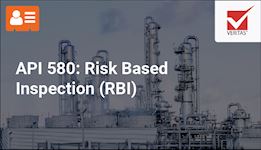Refining Processes for Biofuels and Renewable Fuels
Why take this course?
Meet growing energy demands while addressing environmental challenges through this comprehensive biofuels and alternative fuels course. Explore various fuel types, production technologies, blending processes, and environmental impacts across 17 modules spanning 15 hours. The course includes video lectures and quizzes, with a certificate offering PDH credits upon completion.
What you'll learn
After this course, you...
• have a clear overview of the different types of bio and alternative fuels,
• understand how different bio and alternative fuels are produced,
• have an overview of the feedstock utilised for biofuels production,
• know how the production of biofuels could be integrated into the modern refinery,
• understand how bio and alternative fuels function as single and blended fuels,
• are familiar with the impact of bio and alternative fuels on a car engine,
• have an overview of the environmental impact of bio and alternative fuels,
• know which regulations are related to the use of bio and alternative fuels.
About the course
The expanding human population and industrialisation are increasing the energy demands worldwide, which has resulted in numerous challenges such as environmental pollution, depletion of fossil fuels, and shortage of electricity supply, which must be overcome. To fulfil the energy demands and overcome these challenges, numerous projects and funds are involved in finding an adequate solution.
Transport accounts for around one-fifth of global carbon dioxide (CO2) emissions and road travel accounts for three-quarters of transport emissions. Most of this comes from passenger vehicles. Emission limits are increasingly stringent, and the fuel industry must change its approach to product formulation to meet the challenge.
This training course covers different types of biofuels and alternative fuels, the science behind them, technologies, production, blending and their advantages and disadvantages. It also covers the economics of production, environmental impacts, impact on the engine operation and policy issues.
The course consists of 17 modules split across 15 training hours. All modules will be live sessions with the instructor. This training course is available as a company in-house training only; there is a choice between an online training or an onsite training. All training materials will be available through your EngineeringTrainer account.
Who should attend this course
Personnel from the oil, fuel, biofuel, and auto industries:• Refinery technical personnel
• Trading and blending personnel
• Sales, marketing, and product trading personnel
• Laboratory supervisors and technical personnel
• Policymakers
• Professionals who are interested in or developing in the field of bio and alternative fuels
• Process, project, and consultant engineers involved in bioenergy, petrochemical and chemical industries
Prerequisites
This course is suitable for a range of personal and there are no specific prerequisites.Program & Details
-
Introduction to Biofuels
Live
1. Energy outlook
2. Energy sources and demand
3. Definition – biofuels and alternative fuels
4. Types of biofuels
5. Terminology -
Policies and Regulations
Live
1. Global overview of biofuels regulation approach
2. Types of specifications
3. Primary and secondary importance properties
4. Specification differences (EU, USA, Middle East, Asia…)
5. RED directive -
Sustainability and Certification of Biofuels
Live
1. Sustainable production of biomass
2. Standardisation of sustainability
3. Voluntary standards
4. Chain of custody
5. Certification approaches -
Introduction to Fuels
Live
1. Classification of fuels
2. Basic fuel chemistry
3. Key elements of engine design and how fuels affect its performance and emissions -
Alternative Fossil Fuels
Live
1. Types of alternative fossil fuels
2. CNG, LNG, LPG
3. Mixtures of synthetic liquid hydrocarbons -
Classification of BioFuels
Live
1. Conventional and advanced biofuels
2. Classification according to feedstock source and chemical structure
3. Classification according to the generation of biofuels -
Feedstock for Biofuels Production
Live
1. Biomass classification
2. Edible and non-edible feedstock
3. Terrestrial crops
4. Lignocellulose
5. Algae
6. Used cooking oil (UCO)
7. RED II Directive – the advanced feedstock for biodiesel production -
Impact of Biofuels on Environmental and Engine Operations
Live
1. Emission trends
2. Car engine operation
3. Exhaust gases
4. Impact on engine operation
5. Additives
6. Biofuels in different transport sectors -
Biodiesel
Live
1. Feedstock
2. Chemistry of biodiesel
3. Technology and production
4. Basic properties
5. Biodiesel vs conventional diesel
6. Advantages and disadvantages
7. Hydrogenated vegetable oil (HVO)
8. Biomass to liquid (BtL)
9. Bio Jet fuel -
Bioethanol
Live
1. Background and history of production
2. Feedstock
3. Chemistry
4. Technology and production
5. Production from lignocellulose
6. Application of bioethanol
7. Advantages and disadvantages -
Hydrogen
Live
1. Classification according to the type of production
2. Methods of production
3. Fuel cell
4. Hydrogen storage and safety
5. Advantages and disadvantages -
Advanced Biofuels
Live
1. History of producing fuel from algae
2. Feedstock for production
3. Microbiology and physiology of algae
4. Production of biodiesel from algae
5. Advantages and disadvantages
6. Fisher-Tropsch Synthesis
7. Dimethyl Ether (DME) -
Characterization of Biofuels
Live
1. Basic characteristics of biofuels
2. Specifics of characterisation of biofuels
3. Measurement of biofuels content in mineral fuels -
Blending of Biofuels
Live
1. The required quality and specific parameters of biofuels
2. Quality requirements of mineral and biofuel for blending
3. Types of biofuel blending
4. Terminology
5. Challenges of biofuel blending -
Blending, Storage and Stability of fuels
Live
1. Environmental requirements for biofuels stability and storage
2. Water contamination
3. Risks of blended fuel contamination
4. Preventive actions
5. Corrective actions -
Impact of Biofuels on Environmental and Engineer Operation
Live
1. Emission trends
2. Car engine operation
3. Exhaust gases
4. Impact on engine operation
5. Additives
6. Biofuels in different transport sectors -
Biorefineries
Live
1. Renewable fuels and biofuels in a petroleum refinery
2. Classification of biorefineries based on their feedstock
3. Technology challenges
4. Biomaterials in petroleum refining units – co-processing
5. Integrated refining concepts
Certification


Why choose EngineeringTrainer
-
Unlimited Team-wide Access
-
Advance Technical Competences
-
Courses by Industry Authorities
Since using EngineeringTrainer our internal mentorship has a much more matured character.
Logan Chapman - COO at Chapman Consulting Inc.
Request a Quote
Train Smarter. Grow Faster.
Build real-world skills that help you make better engineering decisions, reduce errors, and stand out in your field.








